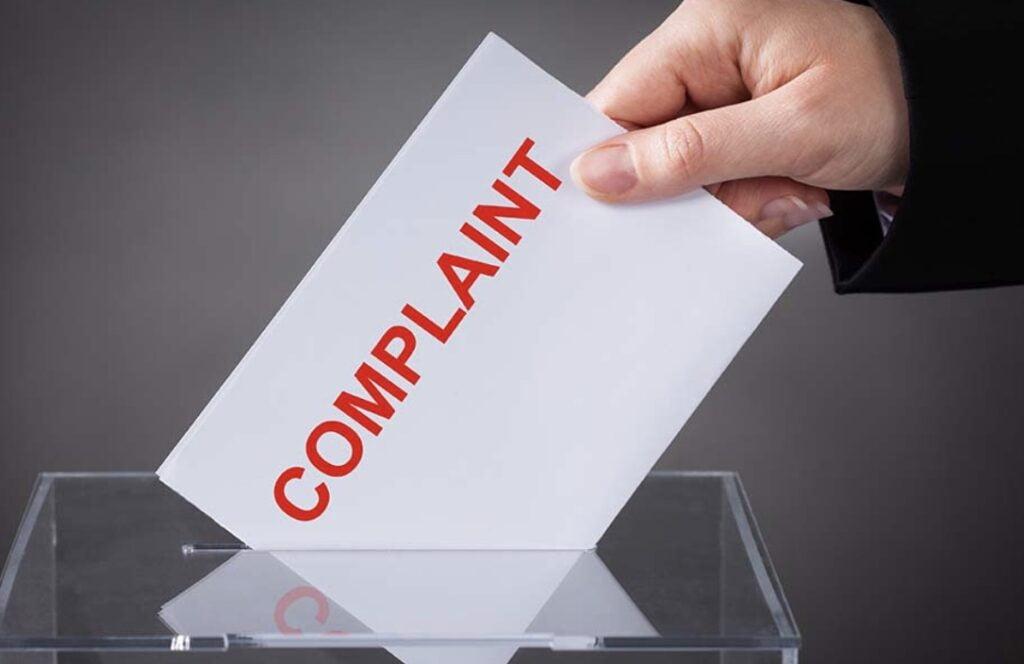Why does keeping records help you complain?
If you need to make a complaint, you need evidence to show that the complaint is justified. The only way to gather evidence is if you have a record of what has happened. ONRECORD will help you complain as it is the perfect way to gather, share and present that evidence.
Of course if your problem is minor or a ‘one off’, it may be quite simple to deal with, but if it’s a more complicated issue, one which is still ongoing or has developed over a period of time, you will need to be able to explain what has been happening, show what has happened and when it happened and provide any supplementary evidence that helps to prove that what you say is true. With a simple complaint, you may be able to resolve it by correspondence or with a discussion. Even then, though, you may not get a satisfactory response and that can be another reason for starting to keep a record because you may need to complain about how your complaint was dealt with.
Our advice with any complaint is to always make records and gather evidence just in case things do not go as you would hope. If people want to try to resist or reject your complaint, you will need good evidence to be successful. You cannot know in advance whether your complaint will be resolved to your satisfaction and you will still need evidence if you want to take matters further if you’re unsuccessful, for example if you have to appeal or go to an Ombudsman.
In some circumstances you will be providing evidence of the actual problem and in others you may also need evidence to show it wasn’t handled appropriately. You cannot know in advance how your complaint is going to be received or handled.
When to start making records to help you complain?
Start making records as soon as you feel that something is going wrong. Record each event as soon as possible after it happens so it’s fresh in your mind. Trying to remember important events days afterwards is always difficult and different events can easily become confused. Not keeping a record at the time or as soon as possible afterwards makes your evidence unreliable.
Always make any serious complaint in writing and back it up with your evidence. Don’t assume that you can rely on discussions. A discussion, when nothing is recorded in writing, can always be misunderstood or misrepresented. If you do have discussions, always make a record, including the name of the person you spoke to, their role and the outcome. If, for example you were promised something would be done by a certain date, record what that was and when it should have been done by. If it didn’t happen or you had to chase it, record that and the explanation for the delay. It could all be important.
Why use ONRECORD to help you complain?
ONRECORD provides an ideal way of gathering and saving your evidence and provides you with a chronology you can use to evidence your complaint. By using ONRECORD you’ll have a detailed account of each event with all the supporting evidence organised by date and time in a chronological report. Make sure names are included when you make records so the individuals responsible can be identified. Upload emails, letters, notes of conversations and anything else that helps to back up what you say. Always remember the person dealing with it needs to know exactly what happened. A chaotic, poorly written and inadequately explained event isn’t helpful. Rate events for their impact. When you come to complain much of the job will already have been done. You can download the chronological report and attach it to your letter or email making the task easy.
See what to record and how to make good records using ONRECORD.
Incidentally, when you make the complaint, sending a copy of your records, do so in writing and, although it may seem obvious, make it clear that it is a complaint you are making. Send it to the complaints manager of the organisation. Their website should have the details of who to write to but if not phone up and ask.
What to include with your letter/email of complaint
- Be clear what outcome you would like, for example an explanation, a review of a decision, an apology, compensation and/or a refund.
- Explain the impact the problem is having on you and others. For example, if social services are reviewing your case and reducing your services, explain the difficulties this is causing, including the practical, emotional and financial impact, whether it is having an effect on your or other people’s health.
- Provide all the relevant documents that help to explain and support your complaint. For example, if you’ve been paying for services that the Local Authority should be providing, upload the receipts to show what you’ve spent.
- If you’re complaining about a service provided by a private company or voluntary organisation working on behalf of a Local Authority or government department, also send a copy of your complaint to the Local Authority or department.
Can ONRECORD help with all kinds of complaints?
Our website has a lot of detail about the wide range of problems ONRECORD can help with and explains how to deal with many different kinds of problems. Check through these pages to see whether your kind of problem is dealt with. It probably is.
We wish you the best of luck addressing your problem and we hope ONRECORD helps you to succeed.

